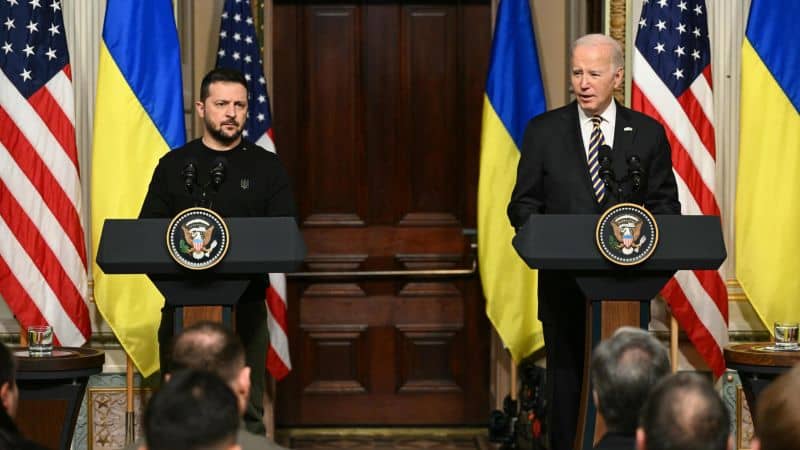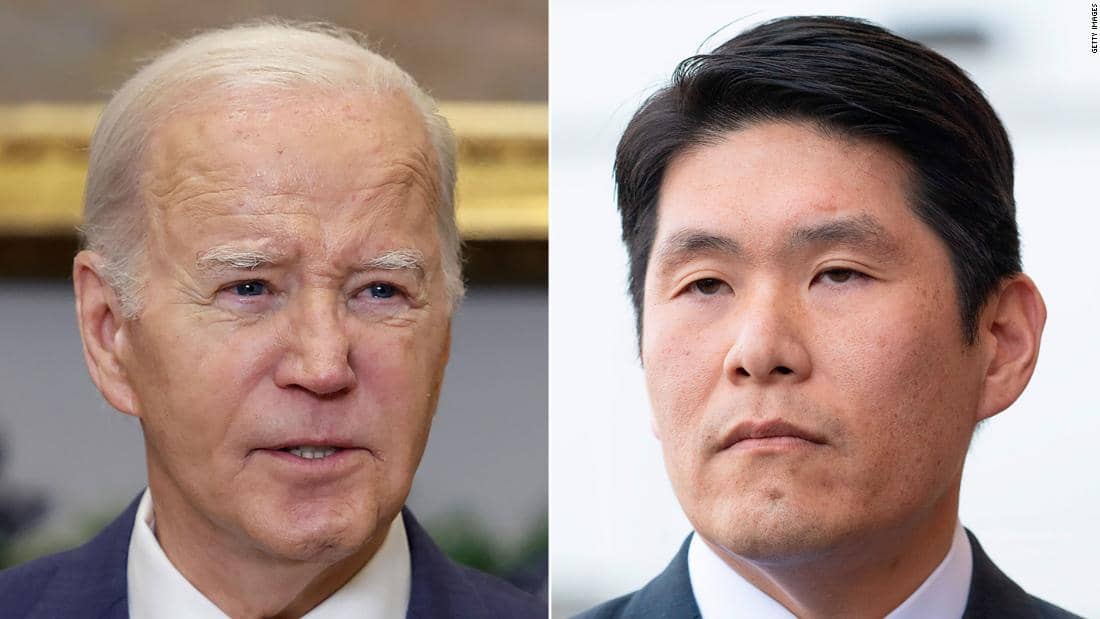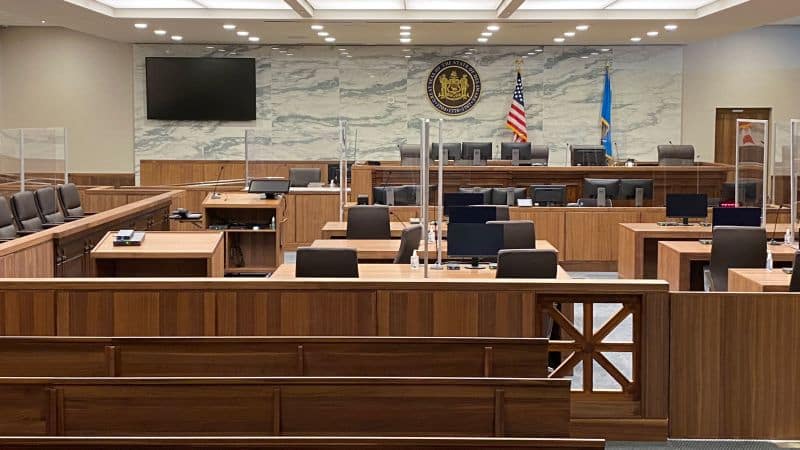CNN — President Joe Biden proclaimed a huge win for rail workers and organized labor Thursday after his administration brokered a tentative deal with freight bosses on long-sought improvements in working conditions

Group of Seven leaders have reached an agreement to loan money to Ukraine backed by the profits from frozen Russian investments, a senior US administration official confirmed Thursday, as the G7 met in Puglia, Italy.
The official added that it’s “only fair that we close the gap by making Russia pay, not our taxpayers, and we found a way to do so that respects the rule of law in every jurisdiction.”
The agreement is the product of years of negotiation complicated by a patchwork of jurisdictional laws that required the direct involvement of President Joe Biden and national security adviser Jake Sullivan, among other top US officials.
What happens next: The leaders will soon issue a joint communiqué on the decision.
It will take some time before Ukraine begins to receive this money, but the US official said the effort would “move with urgency” and the commitment remains “to be ready to disperse $50 billion this calendar year.”
If the loan is dispersed by the end of 2024, it would ensure the money would get to Ukraine before a potential change in US presidents. Biden is facing off against former President Donald Trump in November’s US presidential election, and Trump has refused to commit to sending additional funding to Ukraine.
“The next steps are to enshrine the communiqué commitments with the EU 27, the full membership, then we need to write contracts between the lenders … the recipient, which is Ukraine, and the intermediaries,” the official said.
From there, there will be an agreement on a dispersal schedule.
Don't Miss
Robert Hur speaks during the hearing Tuesday. Jacquelyn Martin/AP Robert Hur explicitly said he “did not exonerate” President Joe Biden
Biden heads to Vietnam in latest attempt to draw one of China’s neighbors closer to the U.S. CNN’s Kim Brunhuber
Every episode is chock-full of mouthwatering regional specialties prepared by chefs all over the country. For those wanting to follow
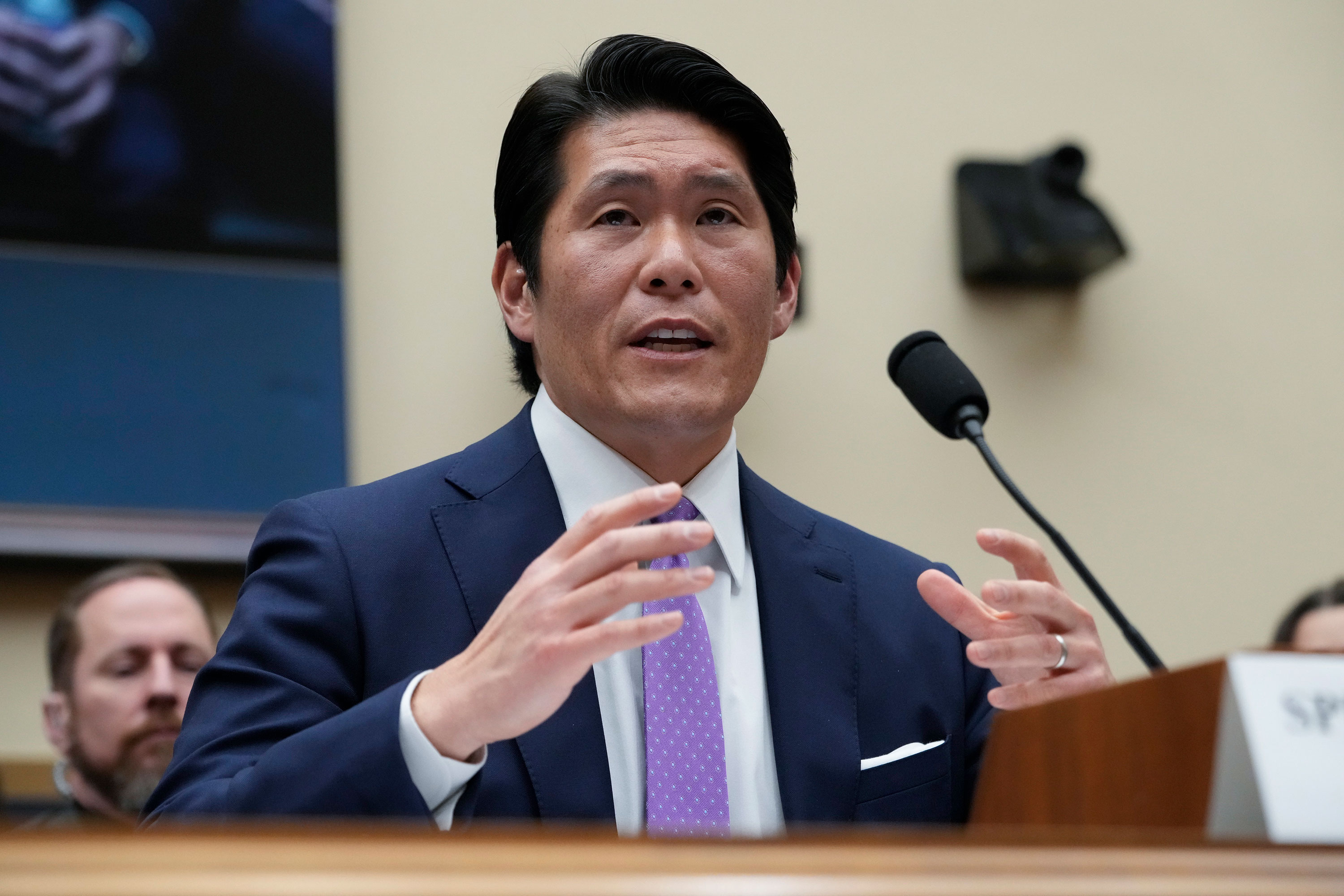
Robert Hur explicitly said he “did not exonerate” President Joe Biden at the end of his yearlong special counsel investigation.
Rep. Pramila Jayapal, a Democrat from Washington state, elicited the comments while tussling with Hur over his conclusions. She claimed Hur “exonerated” Biden, but the special counsel immediately took issue with the term during a tense exchange.
“This lengthy, expensive and independent investigation resulted in a complete exoneration of President Joe Biden for every document you discussed in your report. You found insufficient evidence that the president violated any laws about possession or retention of classified materials,” Jayapal said.
“I need to go back and make sure that I take note of a word that you used, ‘exoneration,’” Hur said. “That is not a word that is used in my report and that is not a part of my task as a prosecutor.”
“You exonerated him,” Jayapal retorted.
“I did not exonerate him. That word does not appear in the report,” Hur said.
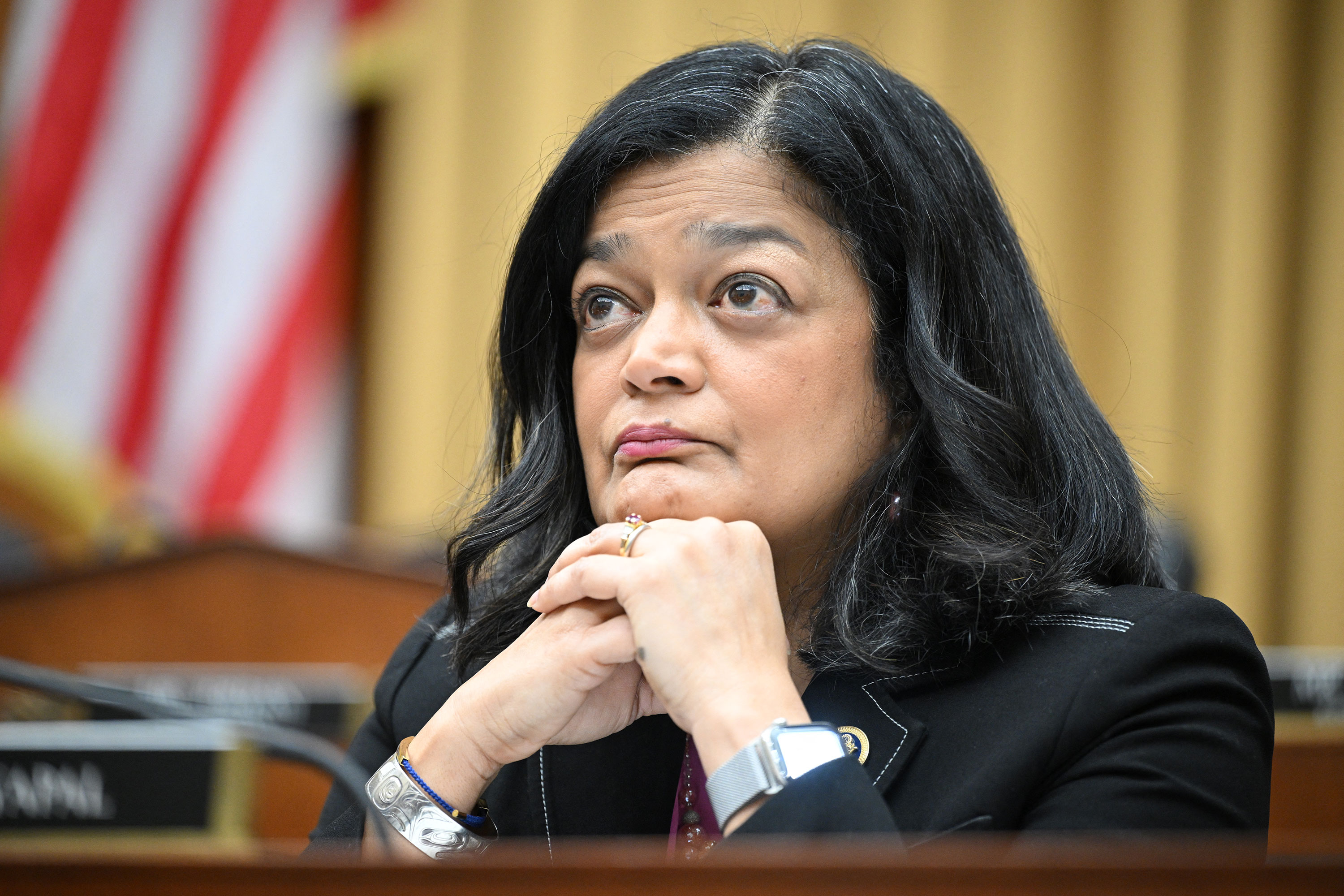
The result of this back-and-forth is that Jayapal spurred Hur to say something that clearly isn’t helpful for Biden, whom she was aggressively trying to defend.
Jayapal brought this up while arguing Hur didn’t have enough evidence to conclude Biden broke the law, in addition to Hur’s determination that a jury would sympathize with the president because of his age and at-times faltering memory.
Don't Miss
Group of Seven leaders have reached an agreement to loan money to Ukraine backed by the profits from frozen Russian investments, a senior US administration
Biden heads to Vietnam in latest attempt to draw one of China’s neighbors closer to the U.S. CNN’s Kim Brunhuber
President Joe Biden, left, and Chinese leader Xi Jinping. (Getty Images) US President Joe Biden and Chinese leader Xi Jinping
Biden heads to Vietnam in latest attempt to draw one of China’s neighbors closer to the U.S.
CNN’s Kim Brunhuber speaks with CNN’s Anna Coren about President Biden’s trip to Vietnam.
Don't Miss
Group of Seven leaders have reached an agreement to loan money to Ukraine backed by the profits from frozen Russian investments, a senior US administration
Robert Hur speaks during the hearing Tuesday. Jacquelyn Martin/AP Robert Hur explicitly said he “did not exonerate” President Joe Biden
CNN — Defending champion Rafael Nadal will face English youngster Jack Draper in the opening round of the Australian Open

US President Joe Biden and Chinese leader Xi Jinping are meeting for the first time face-to-face since Biden took office in 2021 in an opportunity for the two leaders to discuss major points of tension and seek to find ways to keep open communication, while locked in great power competition.
Biden told a news conference last week that he wants to “lay out what each of our red lines are” when he sits down with Xi. The White House reiterated this aim with a statement saying “the leaders will discuss efforts to maintain and deepen lines of communication … responsibly manage competition, and work together where our interests align.”
Beijing’s Foreign Ministry said it was important for the two sides to “properly manage differences,” “avoid misunderstanding and miscalculation” and bring China-US relations back to “the right track.” But China would also “firmly defend (its) sovereignty, security and development interests,” a spokesperson said when asked about the meeting at a regular briefing last week.
Both leaders are entering the sit-down with momentum from their respective domestic politics behind them. Last month, Xi secured a norm-shattering third term surrounded by close allies, while Biden arrived in Asia over the weekend fresh from better-than-expected mid-term election results for his party.
Here’s what’s expected to be on the table:
Better communication: Both sides have expressed interest in improving communication and reducing the risk of a misunderstanding that could flare tensions or even see the two powers veer into conflict. In August, China cut off dialogue with the United States in a number of areas in response to a visit from US Speaker of the House Nancy Pelosi to Taiwan.
Taiwan: The self-governing, democratic island — one of the most contentious issues between Biden and Xi — is expected to a key area of discussion between the two leaders. Xi has pledged to “reunify” the island, which Beijing has never controlled, with the mainland. Biden has enraged Beijing by saying the United States had an obligation to protect Taiwan should China move on it — in a seeming departure from long-standing US policy.
War in Ukraine: A conflict looming large over the G20, Xi and Biden are likely to look for points of agreement on the conflict in Ukraine. China has claimed neutrality, but has refused to condemn Russia’s aggression. Biden may seek to push for Xi to use his close relationship with Russian President Vladimir Putin to press for peace.
North Korea: North Korea’s ongoing provocations in the region through its ramping up of missile tests is another subject likely to be on the table. The US is also looking for China to assert its influence to prevent further conflict here.
Human rights: Biden is expected to raise US concerns about China’s human rights record. The US accuses China of committing genocide against the Muslim minority population in the western Xinjiang region.
Don't Miss
Group of Seven leaders have reached an agreement to loan money to Ukraine backed by the profits from frozen Russian investments, a senior US administration
Robert Hur speaks during the hearing Tuesday. Jacquelyn Martin/AP Robert Hur explicitly said he “did not exonerate” President Joe Biden
Biden heads to Vietnam in latest attempt to draw one of China’s neighbors closer to the U.S. CNN’s Kim Brunhuber

CNN
—
President Joe Biden proclaimed a huge win for rail workers and organized labor Thursday after his administration brokered a tentative deal with freight bosses on long-sought improvements in working conditions and averted a potentially disastrous strike.
Biden has long been an advocate of trade unions, saying as recently as his Labor Day speech in Pittsburgh that “unions built the middle class.”
But his intervention – including calls with union leaders and bosses in the critical run-up to the deal on Wednesday night – helped lift the threat of a dispute that could have had serious consequences for the economy and still-roaring inflation after talks, led by his Labor Secretary Marty Walsh, lasted all through Wednesday and into the middle of the night on Thursday.
The agreement in principle was a validation of Biden’s support for unions, a politically significant factor given the movement’s role supporting Democrats in November’s midterm elections. But it also averted a prolonged shutdown of freight rail that could have hammered the economy and hurt the President and his party politically and exposed him to Republican criticism.
Biden hailed the tentative agreement as “a win for tens of thousands of rail workers who worked tirelessly through the pandemic.”
The key issue in the dispute was not pay but working conditions, which saw some freight rail engineers and conductors facing “on-call” schedules that could see them rostered to work at short notice, 24-hours-a-day and seven-days-a-week.
Dennis Pierce, president of Brotherhood of Locomotive Engineers and Trainmen who was in the talks, said the administration’s involvement in driving toward the tentative agreement delivered what the workers wanted on this issue.
“This is a historic agreement for the first time in recorded history we were able obtain an agreement that has negotiated attendance rules, something we’ve strived for. This is the quality of life issue that we have been trying to get for our members since the bargaining round started,” Pierce said, and like other union negotiators, paid tribute to Biden’s role.
The threat of a strike has not gone away entirely; the deal needs to be ratified by union members. But if blessed, the agreement will sure to be hailed by the President on the campaign trail as another deliverable for an administration that he says is rooted in improving the lives of working- and middle-class Americans.
An extended halt of the vast freight trains that snake across the prairies and north to Canada and south to Mexico would have caused a full-blown economic, social and political crisis at a time when the nation is still clawing its way back from a fragile and redefined sense of normality after the Covid-19 pandemic and facing the worst spikes in food prices since 1979.
A quarter of the way into the 21st century, it’s a little shocking that a rail network that most Americans probably don’t spare a thought for still forms an economic backbone of the nation. But the latest showdown is far from the only occasion in history when labor disputes in this critical industry have threatened nationwide disruption, and have turned into high-stakes political dramas as a result. Without freight rail, the country can’t properly function.
The dispute may be focused on the railroads, but it is also emblematic of a wider trend in industrial relations in modern America, as workers squeezed in ventures pared back aggressively for maximum profit potential, from retail to health care to transportation, demand livable working conditions and turn to unions for help.
The repercussions of a rail strike would have been dramatic.
Roughly 30% of America’s freight moves by rail. If vast trains, some with 240 wagons, don’t move, the country would need to find an impractical 80,000 truck drivers to make up the shortfall. It might seem counterintuitive, but a strike on the railways would send gasoline prices for cars soaring again. That’s because refineries would struggle to get sufficient crude oil from their rail deliveries. Recently harvested crops would be stuck, unable to reach processing plants and could spoil. Farm groups warned of the threat to fertilizer stocks that are transported by rail and needed for the next planting season. There would have been shortages of food and other items in stores – and prices could have risen again, adding to the current plague of inflation. New and used cars would be more expensive, if factories can’t get the parts they need for their assembly lines. And the ports that became clogged during the pandemic could have again filled up, in a huge problem for the US economy that would quickly send shockwaves around the world.
A strike lasting weeks could have underscored, yet again, the tenuousness of the supply chain networks that are the foundation of modern life and how it doesn’t take long to incur serious damage.
These painful consequences, which could touch every American, explain why the talks in Washington brokered by Walsh were so important and urgently pursued.
Negotiations to avert the strike went on for 20 hours, with a deal reached around 5 a.m. ET Thursday, a source familiar with the matter told CNN’s Jeremy Diamond and Phil Mattingly. Biden “made a crucial call” to Walsh and negotiators Wednesday night, the source added, pushing both sides to realize the harm that families, businesses and communities would feel if there was a shutdown of the rail system.
A rail shutdown was not just a threat to the day-to-day lives of millions of Americans. The prospect was a huge problem for Biden and Democrats, first because they know that their brightening chances of staving off a Republican wave in the midterms could be dashed by another devastating shock to the economy that sends prices even higher and shatters the sense of normality that Biden pledged to restore. Another surge in inflation caused by a rail strike could also force the Federal Reserve to prolong its aggressive interest rate strategy, which is expected to go up another notch next week, and so raise the chances of an overcorrection that sends the economy into a recession.
The President, boosted by the passage of key congressional items, has been aggressively selling a story that America is back on the move again and that its economy is ready to roar. A rail strike would quickly tarnish his credibility in selling that narrative.
In a broader sense, the rail dispute pulled Biden between two competing strands of his political identity. He is the most-pro union president in decades. He needs the support of the movement to drive turnout in November and has no desire to be seen pressuring workers to accept a bad deal. On the other hand, the success of his entire presidency rests on getting inflation down and preventing Republicans from amassing Capitol Hill majorities that could make him a domestic lame duck.
Republicans, seeking to wrest the midterm debate back from the controversy over the Supreme Court’s overturning of abortion rights, already spotted an opening in the rail dispute. The GOP tried and failed to pass a bill in the Senate that would enshrine deals most railway unions have made with companies and avert a strike.
“President Biden should have already resolved this himself. Democrats must let this pass,” Senate Minority Leader Mitch McConnell tweeted.
But some Democrats are unwilling to put pressure on unions. The GOP measure was in the end blocked by progressive Sen. Bernie Sanders, who’s twice run for the Democratic presidential nod. The Vermont independent blasted rail companies for making billions in profits and awarding their CEOs millions in compensation while imposing inhumane working conditions.
“The key issue in the current negotiations are not about salaries. They are about the working conditions in the industry which are absolutely unacceptable and almost beyond belief,” Sanders said, criticizing the lack of sick leave offered to some employees and a system that requires many to be on call for dispatch to work on trains 24 hours a day a day and seven days a week.
Arthur Wheaton, director of Labor Studies at the ILR Worker Institute of Cornell University, said that years of cost cutting and consolidation in the rail industry predated the pandemic and have led to the current impasse.
“The railways tried very hard to reduce headcount and actively reduce the number of people that they had working for them as a way to increase their profits or to have a higher return on investment so they could get more investment from Wall Street,” Wheaton said. But that paring down of manpower had caused a deterioration in the conditions for workers, who already faced long hours, and could raise safety concerns given the hazardous cargos some trains carry. The “on call” system mentioned by Sanders is at the center of the current dispute.
“That’s not sustainable for a family or sustainable for your health long term. You’d like to be able to go to bed knowing you don’t have to work for the next 12 hours, instead of saying, ‘Oh, I gotta wait and see if the phone rings,” Wheaton said.
The threatened railroad shutdown would have been the first major strike in the industry since 1992, when Congress moved with unusual speed to end a labor stoppage after only two days amid severe economic consequences – including layoffs at mines that could no longer ship out their coal. The strike had shut down almost all goods and passenger rail in the country and, as with the current drama, threatened to become a political storm in an election year.
One question with this new dispute is whether an ever-more polarized Congress could agree on terms for ending industrial action or whether such an erupting economic crisis would have left rival lawmakers with no choice.
Throughout America’s industrial history in the 20th and 19th centuries, railroad strikes often broke out over poor wages or salary cuts or difficult and dangerous conditions. Often they were crushed by the government or industry barons, sometimes amid scenes of violence. But they are also written in the lore of the labor movement. And they also established leverage that played out in the negotiations between unions and company bosses in Washington.
Then and now, the threat of closing down railroads for a sustained period conjures such dire economic repercussions that the dispute ends up becoming a major political issue that the nation’s leaders are ultimately called on to help solve – for their own good and everyone else’s.
Don't Miss
Group of Seven leaders have reached an agreement to loan money to Ukraine backed by the profits from frozen Russian investments, a senior US administration
CNN — This is it. The media defamation trial of the century is on the precipice of kicking off in
Robert Hur speaks during the hearing Tuesday. Jacquelyn Martin/AP Robert Hur explicitly said he “did not exonerate” President Joe Biden



